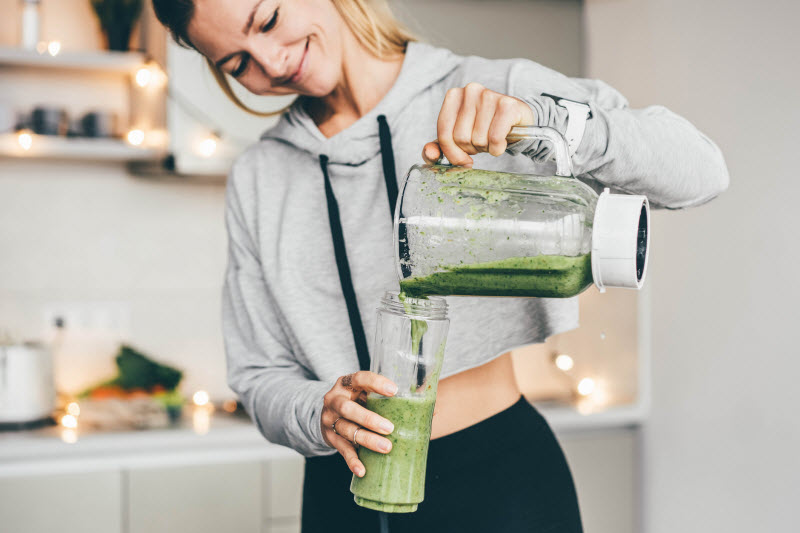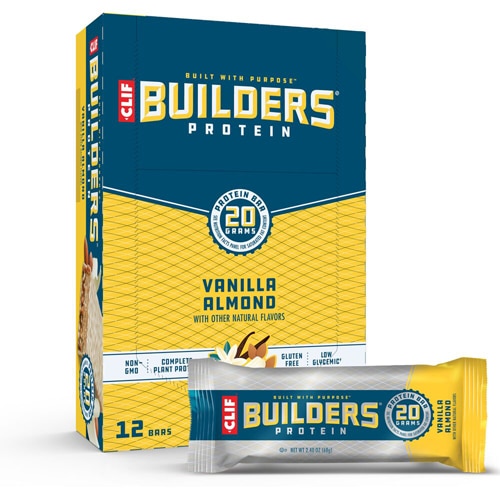[vc_row][vc_column][vc_column_text]Many health-conscious people, especially athletes and avid gym goers, strive to eat well. So, it’s no wonder that many active people turn to a plant-based diet due to the focus on nutrients, fiber, antioxidants and other phytochemicals that can improve health and fight disease.

If this is the case for you, or if you’ve been considering adding more plant foods to your diet, it’s worth learning more about how a plant-based diet can benefit your goals and, if you eliminate all animal foods, what to watch for so you don’t risk deficiencies.
No Meat Athlete Benefits Backed by Science
Cardioprotective effects for endurance athletes
Although cardiovascular activity is a heart-healthy pursuit, endurance athletes who go beyond the training regimens of most recreational exercisers are actually at a higher-than-average
risk for atherosclerosis (cholesterol and fat build-up on artery walls) and myocardial damage.
Plant-based diets can help because they reduce blood lipid concentrations, body weight and blood pressure. A plant-based diet and other healthy lifestyle habits may also help reverse existing plaque buildup on artery walls and improve blood flow, according to
research published in Nutrients.
A significant benefit of eating more fruits and vegetables includes antioxidants which reduce oxidative stress, and diets that include plenty of plant foods that reduce markers of inflammation. Reducing oxidative stress and inflammation will improve your heart health, lowering the risks of heart disease, heart attacks and stroke. Of course, you do not need to adopt a plant-only diet to benefit from simply consuming more of these nutrient-rich foods.
High-carb diets boost energy
Most plant-based diets are high in carbohydrates, which is a crucial macronutrient for athletes. Carbohydrates supply the energy necessary to perform well and
replace the glycogen stores used to power your muscles and repair muscle tissues so you can get
stronger and build muscle.
The
Dietary Guidelines for Americans recommend that 45 to 65 percent of your daily calories come from carbohydrates. While most people don’t have a problem reaching this goal, some athletes or active people may avoid carbs, which have been touted as bad for your or contributing to fat gain. However, these myths are unfounded, and when you eat a diet focused on healthy carbs, you will have much better success powering your workouts and training sessions.
The
International Society of Sports Medicine recommends following a high-carbohydrate diet (8 to 12 grams of carbohydrate per kilogram of body weight per day) to maximize glycogen stores. Glycogen stores are depleted most by high-volume exercise, so if you perform
long or intense bouts of exercise, a higher-carb diet is vital.
Higher intakes of recovery-boosting nutrients
Eating more plants makes you more likely to consume vital nutrients that boost recovery from strenuous training. These include vitamin C, magnesium, beta-carotene and vitamin E.
Plant foods that include these nutrients are linked to better recovery and sports performance, helping your tissues repair and recover,
reducing inflammation and
speeding healing.
Fiber intake is also typically higher for plant-based eaters. Fiber is known for
fighting inflammation, and people who eat more fiber tend to have lower markers of inflammation than those who eat less. Moreover, research shows that high-fiber diets are associated with
physical performance advantages, including faster walking speed, longer 6-minute walk distance, quicker get-up-and-go times, better general performance and higher grip strength.
No Meat Athlete Risks to Consider
There are different risks depending on which type of plant-based diet you choose. Vegetarianism eliminates any meat, including poultry, fish and seafood. Vegan eaters do not eat meat or products of animal origin, such as dairy, eggs and honey.
Veganism poses more challenges to ensuring a nutritious diet for athletes. Common issues include
lack of energy (calories) and protein; getting enough iron, vitamin B12, zinc, iodine, calcium and vitamin D; along with trouble getting enough of the long-chain omega-3 fatty acids EPA and DHA, according to the
Journal of the International Society of Sports Nutrition.
Female athletes must be particularly cautious of becoming low in iron since this nutrient is commonly deficient and even more likely to lead to deficiency and anemia if you avoid animal products. Additionally, the
experts suggest that vegan athletes supplement with
creatine and beta-alanine since these diets promote lower muscle creatine and muscle carnosine levels.
Is a plant-based diet right for you?
Your basis for
choosing a plant-based diet may be personal and, due to ethical, religious or other reasoning, should be honored. If you are, instead, simply curious if a plant-based diet can improve your athletic performance or boost your health in different ways, you can certainly try it and see how you feel.
If you are an athlete, and especially if you are female, if you choose a strict vegan diet, it’s imperative you work with a dietician to ensure your iron levels remain adequate. If your iron stores are low, a strictly plant-based diet may not be appropriate for you until you can ensure you can get enough.
Variations of plant-based diets may suit you better than others, depending on your needs. You can try vegetarian, pescatarian (fish and seafood allowed), flexitarian (mostly plant-based with occasional meat), or another variation that includes some animal products such as dairy or eggs. Speak to your doctor about your specific nutritional needs and consider diet planning help from a dietician or nutritionist.[/vc_column_text][/vc_column][/vc_row][vc_row][vc_column][vc_text_separator title="Plant-Based Product Picks" border_width="2"][vc_row_inner equal_height="yes" content_placement="middle" gap="35"][vc_column_inner width="1/3"][vc_single_image image="163041" img_size="full" alignment="center" onclick="custom_link" img_link_target="_blank" css=".vc_custom_1666584418218{padding-right: 7% !important;padding-left: 7% !important;}" link="https://www.vitacost.com/vitacost-synergy-vegan-multivitamin-including-green-foods-and-digestive-enzymes"][/vc_column_inner][vc_column_inner width="1/3"][vc_single_image image="163040" img_size="full" alignment="center" onclick="custom_link" img_link_target="_blank" css=".vc_custom_1666584438755{padding-right: 7% !important;padding-left: 7% !important;}" link="https://www.vitacost.com/naturelo-vegan-b12-with-organic-spirulina"][/vc_column_inner][vc_column_inner width="1/3"][vc_single_image image="163039" img_size="full" alignment="center" onclick="custom_link" img_link_target="_blank" css=".vc_custom_1666584457548{padding-right: 7% !important;padding-left: 7% !important;}" link="https://www.vitacost.com/garden-of-life-md-protein-sustainable-plant-based-creamy-vanilla"][/vc_column_inner][/vc_row_inner][/vc_column][/vc_row]
 If this is the case for you, or if you’ve been considering adding more plant foods to your diet, it’s worth learning more about how a plant-based diet can benefit your goals and, if you eliminate all animal foods, what to watch for so you don’t risk deficiencies.
If this is the case for you, or if you’ve been considering adding more plant foods to your diet, it’s worth learning more about how a plant-based diet can benefit your goals and, if you eliminate all animal foods, what to watch for so you don’t risk deficiencies.



